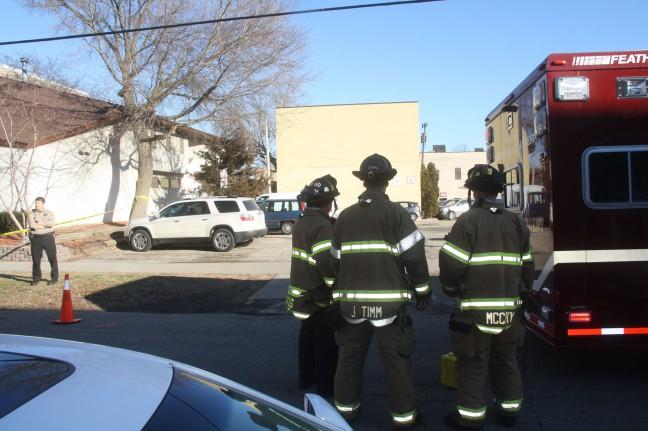The Madison Fire Department will deploy a new Community Alternative Response Emergency Service in the Central District of Madison this Sept. to respond to 911 calls related to mental health.
The Madison CARES team is currently composed of two Madison Fire Community Paramedics and two Journey Mental Health Crisis Workers. The team responds on weekdays between 11 a.m. and seven p.m. in the Central District. Madison Fire Department Assistant Chief of Medical Affairs Ché Stedman said this district spans from the Yahara River to North Park Street.
Director of the Dane County Public Safety Communications Center Luis Bixler said the program will use trained professionals to help with mental health calls that can be handled outside a criminal justice lens in a news conference Aug. 26.
“Connecting our callers with the correct resources is vital in helping people heal and also in freeing up police and 911 resources to positively impact resources and response times for other emergencies.”
At a press conference last month, the program leaders explained the CARES program includes a protocol to help nine-one-one operators determine the appropriate resource to respond to calls. The CARES team will be sent if the call involves assault, threatening behavior or weapons.
At the press conference, Bixler said if the CARES team is unavailable, law enforcement officers will be sent. This will be the case if the call comes outside of CARES operating hours or if the team is already deployed and on another call.
“Madison CARES will send the right person to the right call,” Madison Mayor Rhodes-Conway said during a news conference Aug. 26. “In many instances, sending someone in uniform could escalate, rather than de-escalate the situation. Madison CARES will reduce trauma for patients and reduce our reliance on emergency rooms and jails, which are sometimes the most costly and least appropriate option.”
The Madison Fire Department, which had a large part in creating the program, said the CARES team has received extensive training on crisis intervention, cultural competency, de-escalation, suicide prevention and risk assessment and trauma-informed care. Paramedics on the team will handle any medical emergencies and assess underlying medical issues.
The structure of CARES is based on similar initiatives including CAHOOTS in Eugene, Oregon and STAR in Denver, Colorado. Madison designed CARES using both of these programs, Dane County emergency services data, experts in the community and feedback gathered through public meetings.
“We did a couple of listening sessions not just with folks in the community but with mental health providers in the city and Dane County as well,” Stedman said. “We had a lot of input from Dane County Human Services and Journey Mental Health as well as citizens.”
Stedman said community input guided the program into opting for less intimidating uniforms without badges and placed an emphasis on ensuring the team is diverse. The hiring process included recruiting diverse applicants and creating a team that is bilingual and includes crisis workers who identify as people of color.
Stedman said the program will continuously collect data and review it on a quarterly basis to make adjustments as needed. Adjustments will also take into consideration the budget of the program, which stands at nearly half a million dollars this year.
“Over this next year, we will learn,” Rhodes-Conway said. “We will learn from the call center data, we’ll learn from the experience of the folks on the van and we’ll start to see how things are changing in our community.”
In the press conference, Rhodes-Conway explained the limits on operations are based on data from the estimated 7,000 mental health-related nine-one-one calls annually. Moving forward, some are hopeful for an expansion beyond the set hours, locations and number of workers.
University of Wisconsin Senior and leader of Alpha Chi Mental Wellness Group Lex Ricci said she understands the current constraints of the program but hopes to see an expansion soon.
“The resources aren’t quite available right now, but I hope that in the future if this works out well, which I really hope it does, there’ll be more of these emergency response teams coming around because there’s always more than one mental health crisis happening at a time,” Ricci said.
Associated Students of Madison Chair Adrian Lampron said in an email they are interested in how the CARES program can inform the creation of the UW Crisis Response Team on campus.
ASM previously budgeted for such a program last year that UHS Mental Health Services and UWPD are working together on.
“ASM is very excited to see how the CARES pilot goes and we are hopeful that it will be expanded to cover all of Madison if successful,” Lampron said. “Creating a more equitable public safety strategy should continue to be a priority for our community.”


